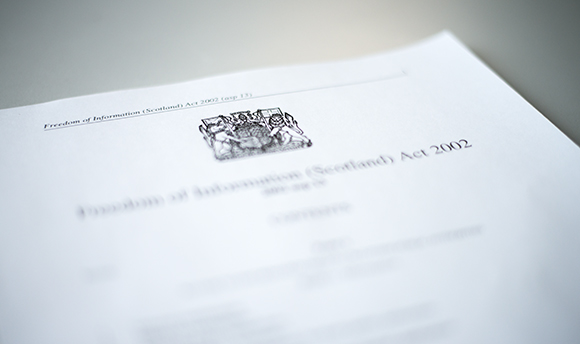Recognition of Prior Learning
1. Introduction
Recognition of Prior Learning (RPL) encompasses the whole process whereby you can identify, explore, and claim academic credit for previous certificated and/or experiential learning. The main ways RPL is used is to enter a programme or to save repeating previous study and thus reduce overall student workload. RPL can be gained from several different places.
You may be able to gain RPL credit for previous certificated study, undertaken elsewhere (see section 3.2). You also may be able to gain academic credit for experience; for example, experience gained through volunteering, or in your workplace (see section 3.3).
For learning to be awarded as credit towards your programme of study, it needs to match learning outcomes and to be evidenced. This guidance explains some of the key terms and the processes followed by QMU. The guidance has been developed to ensure parity and consistency when considering claims for credit for prior learning.
2.1 Specific Academic Credit can be applied for when specifically matched against the learning outcomes for a module(s) of a QMU programme. Specific academic credit is normally matched against a whole module. There may be occasions where previous academic credit gained out with the QMU programme matches the learning outcomes for a specific module component and therefore partial matching (usually exemption from one element of assessment) may be applied for.
2.2 General Academic Credit is the term for academic credit points applied for at a particular SCQF level but not matched to specific module outcomes.
This would usually be applied for:
- where module exemptions are sought at a specific level of study or;
- where direct entry through advanced standing is granted to a specific level of study (e.g., direct entry to Level 2 of a programme). This general academic credit may be deemed acceptable for the named award but does not specifically match QMU named modules (see section 3)
2.3 Academic Credit Frameworks
There are numerous academic credit frameworks. Using these frameworks allows comparison between qualifications gained through different systems. The frameworks most encountered in the UK include:
2.3.1 Scottish Credit and Qualifications Framework (SCQF)
This is the credit framework used at QMU and across Scotland. It means that we can be confident that 20 credits at Level 7 (first year undergraduate) credits from another Scottish institution are equivalent to 20 credits at Level 7 (first year undergraduate degree) credits here at QMU.
2.3.2 Regulated Qualifications Framework (RQF) and Credit and Qualifications Framework for Wales (CQFW)
RQF is the English Qualification Framework and CQFW is the Welsh Credit and Qualifications Framework that allows us to benchmark qualifications based on size and level. These frameworks allow comparison between qualifications gained in different areas of the UK.
2.3.3 European Credit Transfer Scheme (ECTS)
This is the same principle as the SCQF but is Europe wide. 10 credits on the SCQF are equal to 5 credits on the ECTS.
2.3.4. National Academic Recognition Information Centre (NARIC)
NARIC is a group that matches international qualifications and UK qualifications. This enables us to be confident that an Undergraduate Diploma in Singapore is broadly equivalent to completing Level 9 (year 3) study in the UK, for example. NARIC equivalence is usually ascertained by Admissions department colleagues prior to a student being admitted to a programme.
There are three main types of Recognition of Prior Learning.
3.1 Advanced Standing
Applications for Advanced Standing normally relate to the Admissions process for a specific programme where as RPCL/RPEL are essentially exemption from modules/components and not programmes.
Advanced Standing applies when learning that can be evidenced allows entry to a programme at a later point than the usual admissions point (e.g., directly into Level 2 of an undergraduate programme or directly into the final 120 credits of study in a Masters degree where a student has a Post Graduate Certificate).
Advanced Standing for some programmes may be captured by a group agreement that has been drawn up by the Programme Leader or Collaborative Academic Lead AND an appropriate person from the Division of Registry and Academic Administration (e.g., School Manager).
Numerous examples of individual applications for Advanced Standing exist. For example, a student with a Higher National Diploma (HND) in a relevant subject may apply for entry with Advanced Standing into year two or three of a relevant degree, depending on the extent of shared subject matter covered in the HND.
Entry to a programme via Advanced Standing must be notified to the RPL Panel Secretary on RPL form-AS in order for the academic credit to be added to the student record.
3.2. Recognition of Prior Certificated Learning (RPCL)
RPCL refers to learning that has previously been assessed and certificated by a Further/Higher Education Institution or training provider. Applications for Recognition of Prior Certificated Learning can only be considered for already matriculated students.
RPCL applies when a student can provide appropriate evidence of academic learning by provision of relevant documentation. This would normally include student transcripts, module descriptors indicating recognised academic level of study (e.g. SCQF; RQF, CQFW, ECTS), and evidence of matching either specific or general academic credit (see section 2.1 and RPL form-AS/RCPL). Depending on the evidence provided a challenge essay may also be required, to meet the requirements of entry to a programme.
Partial Matching of Module Components
There may be occasions where previous academic credit gained out with the QMU programme matches the learning outcomes for a specific module component and therefore partial matching (usually exemption from one element of assessment) may be applied. In this situation, the student will pay a reduced module fee.
Students are required to complete RPL form-RPCL, this includes a section to be completed by the Programme Leader indicating how the application has been reviewed, how the credit applied for matches against specific or general credit, and a recommendation detailing the element to assessed to the RPL Panel.
Applications for RPCL must be notified to the RPL Panel Secretary on RPL form-RPCL for the academic credit to be added to the student record.
Partial Matching of Learning Outcomes
Where previous academic credit gained out with the QMU programme does not match all the learning outcomes for a specific module/component a student may be asked to complete an additional piece of coursework.
Students should be aware that the submission of an additional piece of work in relation to a Recognition of Prior Certificated Learning (RPCL) process requires considerable student effort. In addition, it involves academic supervision, assessment and a fee may be charged.
Step 1
Students are required to complete RPL form-RPCL, this includes a section to be completed by the Programme Leader indicating how the application has been reviewed, how the credit applied for matches against specific or general credit, and a recommendation to the RPL Panel of the additional piece of coursework that must be completed.
Step 2
Once the student has completed the additional piece of coursework this should be reviewed and feedback provided on RPL feedback sheet – RPCL to the Panel, and the appropriate academic credit will be added to their student record.
If a student does not successfully complete the additional piece of coursework, they will have one further attempt to resubmit.
3.3 Recognition of Prior Experiential Learning (RPEL)
Learning which has been achieved outside a formal experience with an education or training provider may be appropriate to use in a Recognition for Prior Experiential Learning (RPEL) claim. This type of learning may be gained through voluntary or workplace experiences.
Applications for RPEL can only be considered for already matriculated students. Students are always advised to seek academic guidance regarding how to best submit an RPEL claim – e.g., for a large amount of credit (over 40 credits), it is often easier to partition the work into different “packages” to allow depth and focus to be evidenced.
Students should be aware that the RPEL process requires considerable student effort. In addition, it involves academic supervision, student work and an assessment, and therefore there is an associated fee, as per publication on the University website. Students and academic supervisors are required to familiarise themselves with the timelines of RPL Panel meetings in order that appropriate deadlines are met, and students are facilitated in their RPEL claim and overall student journey.
Applications for RPEL follow a two-stage process:
Stage 1
Must be notified to the RPL Panel Secretary on RPL form-RPEL at least two weeks ahead of RPL Panel dates for the RPL Panel to scrutinise the application. If approval is granted, an RPEL fee is charged and students can progress to Stage 2, which involves preparation and submission of a package of work to evidence learning. The RPL Panel normally identifies the package, but indications, from the Programme Leader, of potentially appropriate work in the Stage 1 application are welcomed.
Stage 2
Concludes with submission of work by the student, to an agreed timeline, and the work is assessed, and feedback provided on RPL feedback sheet–RPEL.
Students who successfully complete Stage 2 will have the appropriate academic credit added to their student record.
A sample of exemplar RPL applications is available to provide guidance on how to complete these forms.
Section 3 has identified the three main processes whereby RPL can be claimed. However, there is a maximum amount of academic credit which can be claimed through RPL.
The maximum allowed under QMU regulations is up to 50% of the level at which they enter a programme.
It must also be noted that students are not able to use the same credit twice for the same programme. This is classed as double counting, an example of this is when the recognition of prior learning (and credit) that has already resulted in the award of a qualification similar to, or the same as, the qualification which the student is seeking to be awarded. Another example of double counting is the awarding of credit for the same learning to two (or more) separate qualifications at the same level. In effect, providing two qualifications ‘for the price of one’.
The University does not consider double counting to be educationally desirable or defensible and so will not permit RPL to be used for that purpose.
Full details available from the Registration regulations.
In exceptional circumstances, generally on professional programmes, there may be programme specific circumstances which affect how RPL is used (e.g., specific elements in the V300 Independent and Supplementary Prescribing for Health Care Professionals module.)
The purpose of the RPL Panel is to assess applications made by current students for the recognition or accreditation of prior learning. The assurance of quality and equity rests with the RPL Panel.
The RPL Panel comprises a Convener, a Secretary (from the Division of Registry & Academic Administration) and at least one representative from each division from the university.
The RPL Panel meets up to four times a year and has overarching responsibility for the recognition and accreditation of prior learning.
Much of the initial work regarding RPL (e.g., matching academic credit) is devolved to Module Co-ordinators and Programme Leaders as the experts in their programme. With an increasing number of collaborative programmes, the Collaborative Academic Lead is required to liaise with both their collaborative colleagues and their Divisional representative to ensure the relevant processes are followed, and that the Divisional representative can adequately present the case to the RPL Panel.
5.1 RPL Panel Function
The Panel will:
- Note applications for Advanced Standing (AS) and approve non-standard applications for Advanced Standing.
- Approve applications for the Recognition of Prior Certificated Learning (RPCL). Standard applications should be presented with a recommendation from the Programme Leader, and it would be unusual for the Panel to overturn the recommendation. Non-standard cases will be discussed and approved, or not, by the Panel.
- Approve or refer Stage 1 applications for the Recognition of Prior Experiential Learning (RPEL) and Recognition of Prior Certificated Learning (RPCL).
- Note the outcomes of Stage 2 applications for the Recognition of Prior Experiential Learning.
- Add academic credit to the student record.
- Notify the student on the outcome of individual AS, RPCL and RPEL applications.
5.2 RPL Panel assessment criteria overview
When assessing any claim for RPL credit the following criteria apply:
| Criteria | Definition | Evidence |
|---|---|---|
| Authenticity | That the applicant completed what is claimed |
For certificated learning original documents should be shown to the Programme Leader who can copy them for submission to the Panel if necessary or can confirm that they have seen them on the appropriate RPL form.
For experiential learning, in addition to documentary evidence it may be appropriate to provide verification from a line manager to confirm that the skills and experience claimed are authentic. |
| Acceptability | There is an appropriate match between the learning outcomes being demonstrated, the level of study and the amount of credit being claimed |
This may include a transcript showing the SCQF level or a module descriptor or programme specification.
In this case advice may be given about mechanisms whereby additional small amounts of credit may be gained. |
| Currency | Is the learning sufficiently recent to demonstrate up-to-date knowledge and skills? Alternatively, has the student applied/extended/enhanced their relevant knowledge and skills over the intervening time? |
If the qualification was gained within the last five years it can be considered to be current, although for some disciplines it may need to be shorter.
Equally, if a student gained skills or knowledge over five years ago but uses them consistently as part of their work or CPD in the intervening years it could be considered current.
A supporting statement from a relevant source (i.e., line manager) may be required to ensure evidence of currency. |
5.3 RPL Panel membership
Currently the roles are filled as follows:
Convener Lizanne Steenkamp
Secretary Stacey Barnes
| Divisional/Programme Representatives | |
|---|---|
| Dr Linda Renton | Occupational/Arts Therapies Representative |
| Vacant | Speech & Hearing Sciences Representative |
|
Julie Churchill Ruth Magowan Anna Buckby |
Nursing and Paramedic Science Representatives X 3 |
|
Dr Janie McCluskey Dr Joseph McIntyre Dr Anil de Sequeira |
Dietetics, Nutrition, Biological Sciences, Physiotherapy, Podiatry and Radiography Representative X 3 |
| Dr Gemma Blackledge-Foughali | Queen Margaret Business School |
| Caryll Jack | Psychology, Sociology & Education Representative |
| Vacant | Media, Communication and Performing Arts Representative |
| Dr Kat Lord & Bill Lawson | QMU Online |
| Representative of Collaborative Partner | Co-opted when necessary |
| Representative of these programmes | Professional Doctorate Representative/ Institute for Global Health and Development Representative - Co-opted when necessary |
The Convener of the RPL Panel does not constitute as a Divisional/Programme Representative.
Programme Leaders/Collaborative Academic Leads should:
- Provide information and guidance to students.
- Ensure the RPL paperwork is completed correctly.
- Discuss and brief their representative on the RPL Panel ahead of the meeting to allow full discussion of applications and to ensure no delays which may disadvantage the student.
- Ensure applications are forwarded to the RPL Secretary within the meeting deadlines.
Divisional/Programme Representatives should:
- Provide guidance to Programme Leaders/Collaborative Academic Leads
For Advanced Standing and RPCL, if an application is submitted on time, the student/Programme Leader/Collaborative Academic Lead etc., has taken appropriate advice and the application follows due process, QMU RPL guidance and has the relevant form(s) completed along with acceptable, authentic, and current evidence attached, it would be expected that the claim would be successful.
If a claim is unsuccessful, an explanation will be provided as to where the application does not meet criteria, and advice provided as to the next steps to be taken.
If a Stage 1 RPEL claim is unsuccessful, an explanation will be provided and advice will be given on how to move forward, and opportunity will be given to resubmit the Stage 1 claim. If a Stage 2 RPEL is unsuccessful, feedback will be provided on the submitted work and the student will be given one more opportunity to submit the work.
NHS Education for Scotland (2016) Recognition of Prior Learning. Available at:
https://vimeo.com/466204716 (Accessed April 2022)
Scottish Credit and Qualifications Framework (2022) Recognition of Prior Learning.
Available at https://scqf.org.uk/support/support-for-individuals/rpl-for-learners/ (Accessed April 2022)
Scottish Qualifications Agency (2018) Comparing RQF/CQFW/SCQF qualification levels.
Available at https://www.sqa.org.uk/sqa/64561.4196.html (Accessed April 2022)
Quality Assurance Agency for Higher Education (2018) The UK Quality Code for Higher Education – Chapter B6: Assessment of Students and the Recognition of Prior Learning. Available at:
https://www.qaa.ac.uk/quality-code (Accessed April 2022)
Whittaker, R. and Brown, J. (2012) Streamlining Recognition of Prior Learning Guidelines, QAA Scotland. Available at https://www.qaa.ac.uk/docs/qaas/enhancement-and-development/streamlining-and-enhancing-rpl-support-and-assessment.pdf?sfvrsn=4947f581_18 (Accessed April 2022)
A comprehensive flowchart of the application process for all three types of Accreditation or Recognition of Prior Learning.


